HIV JUSTICE WORLDWIDE Strategy Meeting takes place in-person for the first time since 2020
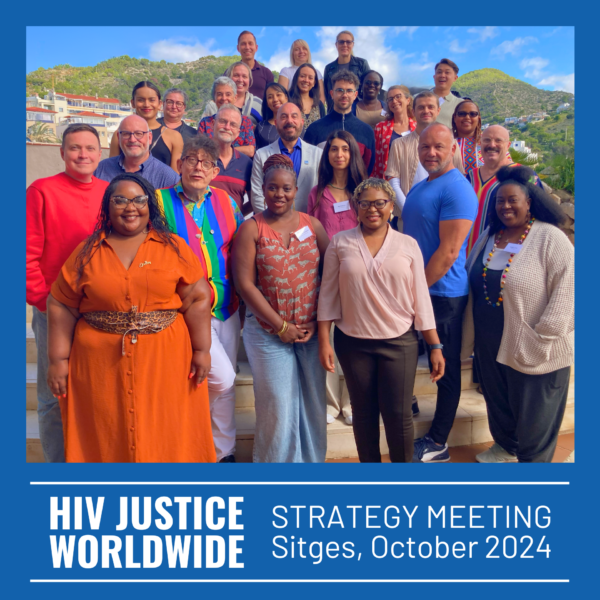
In October 2024, members of HIV JUSTICE WORLDWIDE coalition met in person for the first time since 2020, to:
- Deepen understanding of the coalition’s history, context, and role in the current global landscape.
- Evaluate the relevance of HJWW’s aims, values, and principles in light of emerging challenges and partner priorities.
- Definine the strategic direction and purpose of HJWW for 2025 and beyond.
- Strengthen partnerships and integrating scientific advancements into advocacy for HIV justice.
- Enhance communication strategies for collaborative advocacy to effectively combat HIV criminalisation globally.
Organised as a COVID-safe space, the meeting made the most of the sunny location in Sitges, Spain for many of the sessions. Participants highlighted the value of in-person interactions and the renewed energy and inspiration derived from the gathering.
This meeting marked significant milestone for the coalition, fostering a renewed sense of community and shared goals.

Proposed re-criminalisation of HIV averted
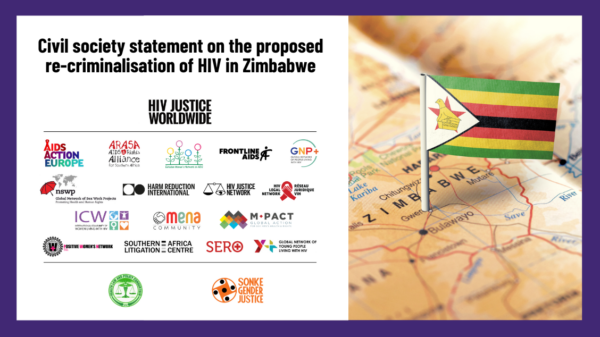
In March 2024, a bill was put forward to amend criminal laws relevant to the protection of children and youth. A provision was added to this bill that sought to amend Section 78 of the criminal code which criminalised the 'deliberate infection’ of another person with a sexually transmitted disease other than HIV. The amendment would have included HIV within its scope.
Alarmed by the proposed change which would have re-criminalised HIV exposure or transmission, and to support the local efforts, the HIV JUSTICE WORLDWIDE coalition, along with the Health Law and Policy Consortium and Sonke Gender Justice released a civil society statement criticising the proposal.

HIV Is Not A Crime Awareness Day
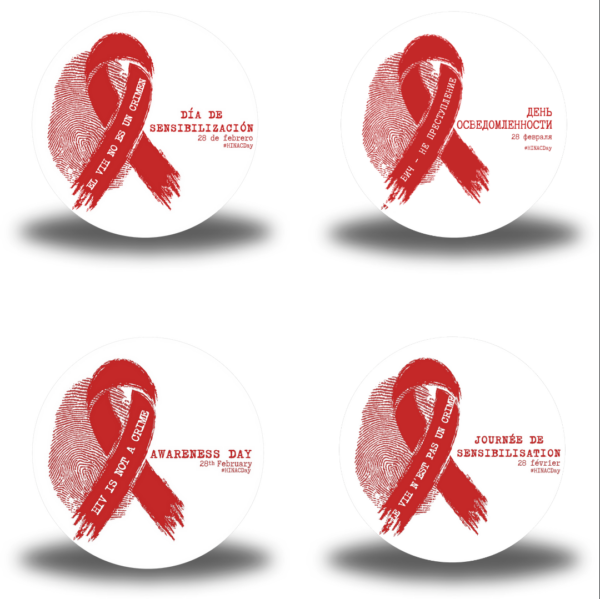
On 28th February 2024, HIV Is Not A Crime Awareness Day – which began two years ago in the United States – became an international day for the first time.
HIV Is Not A Crime Awareness Day was an opportunity to amplify the voices of those who have been criminalised based on their HIV status; to remind people of the negative impacts of HIV criminalisation on health and rights; to celebrate the work of many individuals who are part of the growing global movement to end HIV criminalisation; and to recognise that there’s still much to do to achieve HIV JUSTICE WORLDWIDE.
The HIV JUSTICE WORLDWIDE coalition issued a statement inviting the world to stand with us in solidarity and action as we strive to eliminate the unjust criminalisation of people based on their HIV-positive status.
The theme, “You care about ending HIV criminalisation – you just don’t know it yet!” was also reflected in a wide range of global activities that included a special episode of the HIV Justice Networks' webshow, HIV Justice Live! as well as events that took place throughout the United States and in the UK Houses of Parliament.
The day also attracted a significant amount of social media presence in multiple languages around the world.

Progress in Tajikistan
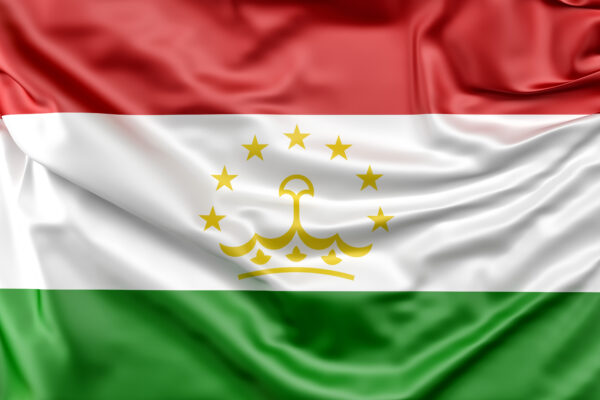
With almost 200 known HIV criminalisation cases in the central Asian republic, progress was made towards HIV decriminalisation in Tajikistan when the recent Plenum of the Supreme Court marked the first step in this important process in January 2024. One of the most significant changes was the recognition of the fact of "placing people at risk of HIV" was an unproven basis for criminal prosecution.
In Feburary 2024, the CEDAW committee also recommended that Tajikistan remove it's HIV-specific criminal law, following a shadow report from HJWW coalition member, Eurasian Women's Network on AIDS, who have painstakingly documented that marginalised groups bear the brunt of the implementation of the HIV criminalisation law in Tajikistan; starting in 2014, authorities have regularly targeted sex workers and LGBT people, often under the guise of disease prevention.

Law reform across Mexico
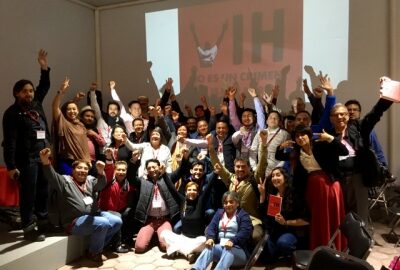
Advocacy against HIV crimininalisation by civil society in Mexico began in earnest when the HIV JUSTICE WORLDWIDE coalition supported the creation of the Mexican network in 2017. Since then, the network – supported through HJWW partner, SERO's LAC co-ordination – has worked tirelessly to raise awareness of the harms of HIV criminalisation. By December 2023, three different Mexican jurisdictions had repealed or reformed the 'danger of contagion' laws that had been used to criminalise people living with HIV: Nayarit (March), Baja California Sur (December) and Ciudad de México (December). A further state, Colima, went on to repeal its law in March 2024. Read more here.

Fast Track Cities
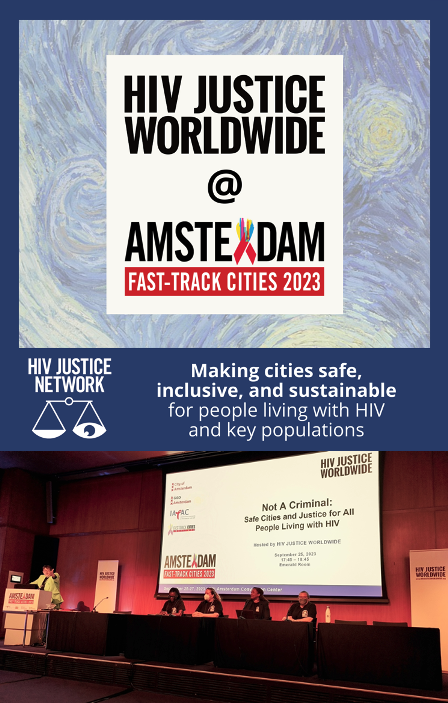
The HIV JUSTICE WORLDWIDE coalition had a significant presence at the Fast-Track Cities 2023 conference in Amsterdam, which was organised by the International Association of Providers of AIDS Care (IAPAC), in collaboration with UNAIDS and other partners.
Our satellite meeting, ‘Not A Criminal: Safe Cities for All People Living with HIV’ explored the question “safer for whom?” in the context of policing and criminalisation and featured presentations and case studies from ARASA, GNP+, HIV Legal Network and the HIV Justice Network.
In addition, HJN’s ED, Edwin J Bernard represented civil society on the conference’s high-level panel, ‘Inclusivity as Driver: Issues, Challenges, and Opportunities in Implementing SDG 11', which also featured mayors of eleven cities from around the world, and also led the session, 'Science-Based: Creating Legal Frameworks to Quash and Mitigate HIV Criminalization’.
HJN’s Senior Policy Analyst, Alison Symington, and GNP+’s co-ED, Florence Riako Anam, also served as panelists in the session ‘#SayZero and U=U: Innovative Win-Win Strategies to Accelerate Global HIV Targets’ hosted by Prevention Access Campaign, with GNP+'s Florence Anam also participating in the community panel, ‘Love Without Fear: Promoting Inclusivity to Realize the Rights to Dignity, Health, and Wellbeing.’

Bringing Science to Justice
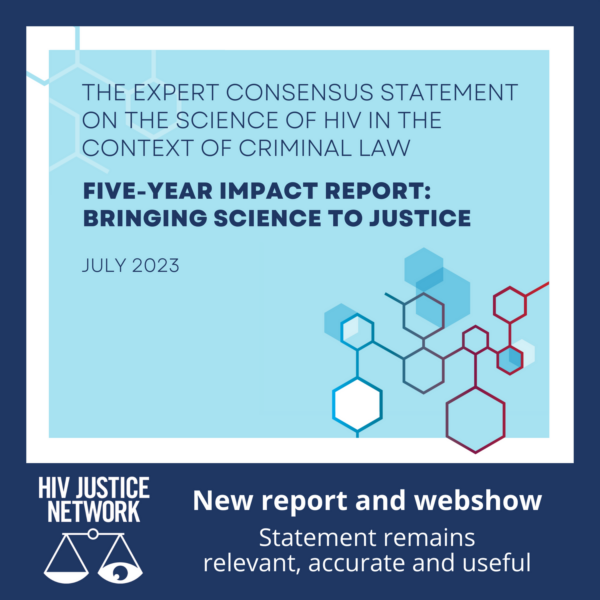
A ‘Five-Year Impact Report: Bringing Science to Justice’ concludes that the Expert Consensus Statement on the Science of HIV in the Context of Criminal Law remains relevant, accurate and extremely useful.
The Expert Consensus Statement was the result of a partnership comprising the International AIDS Society (IAS), International Association of Providers of AIDS Care (IAPAC), the Joint United Nations Programme on AIDS (UNAIDS) and the HIV JUSTICE WORLDWIDE (HJWW) coalition.
Although ending HIV criminalisation cannot rely on science alone, the statement can help limit unjust prosecutions while we work to end the HIV-related stigma, discrimination and structural inequalities that drive criminalisation.

An Open Letter to President Yoweri Museveni from the HIV JUSTICE WORLDWIDE Coalition
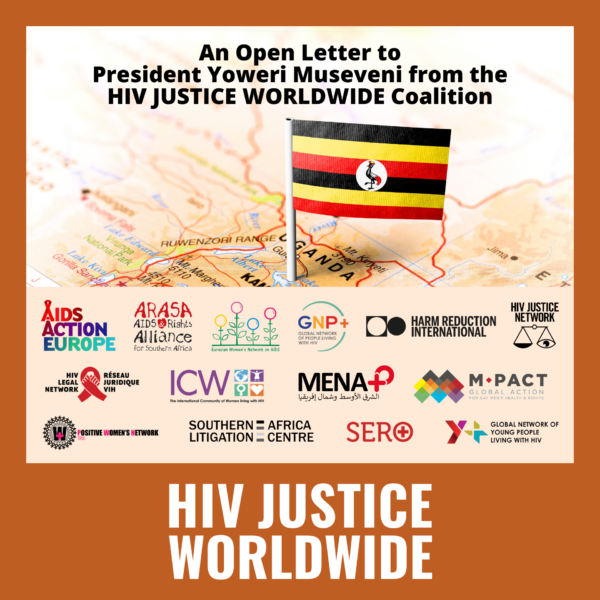
Our experience as a global coalition working to end punitive responses to people living with HIV in all their diversities has taught us that criminal laws are not only ineffective, they are also counterproductive to the HIV response. Such laws are not driven by evidence but by perceived “morality” and often lead to a myriad of human rights violations, from arbitrary arrests and detentions to coerced confessions and plea bargains to unfair trials and harsh prison sentences.
In April 2023, we published an open letter to Ugandan President Yoweri Museveni calling upon him not to sign the Anti-Homosexuality Bill 2023 into law. We urged him to show how Uganda is committed to protecting all of its citizens and doing no harm to people for simply being who they are by instead enacting legislation to protect the rights of LGBTIQ people, already a vulnerable and marginalised group in Uganda, from all forms of hate, violence, and inhumane treatment and to ensure the protection of their fundamental rights irrespective of their sexual orientation.

HIV Justice Academy launched
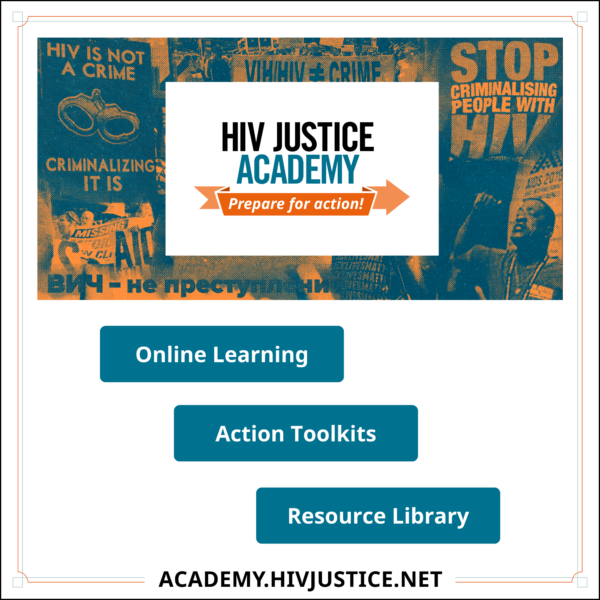
The HIV Justice Academy, created by the HIV Justice Network on behalf of HIV JUSTICE WORLDWIDE, is a freely-available global learning and resource hub designed to support people who want to be part of the movement to end HIV criminalisation.
With its accessible written and video resources, the idea behind the HIV Justice Academy is to engage a growing community of HIV justice activists and advocates, providing timely and accessible learning, tools and resources, so that progressive change in legal and policy environments for people living with HIV at national, regional, and international levels can be achieved.
At the heart of the HIV Justice Academy is the HIV Criminalisation Online Course which provides a global overview of HIV criminalisation, useful for anyone who is interested in learning more about HIV criminalisation and how to advocate effectively against it. You can also find practical Action Toolkits and a Resource Library – an archive of the movement's most important materials.
Launched initially in English, the Academy is also now available in French, Spanish and Russian.

Lesotho high court finds imposition of death sentence solely on the basis of HIV status unconstitutional
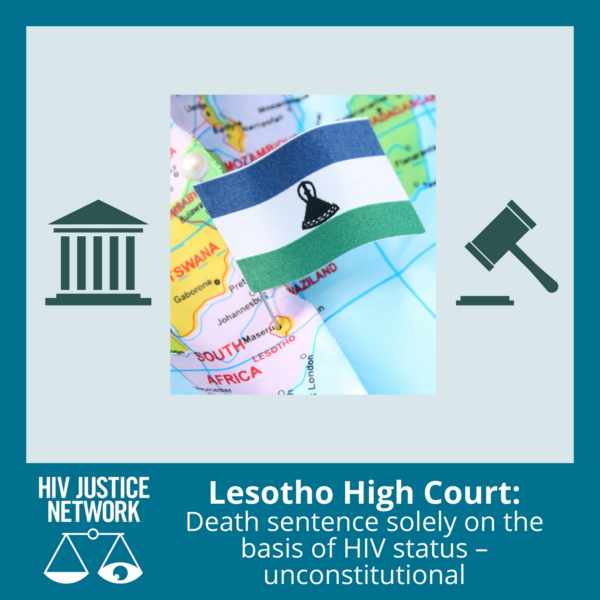
On 25 October 2022, the High Court of Lesotho in the case of MK v Director of Public Prosecutions and Others issued a judgment on a constitutional challenge to certain sections of the Sexual Offences Act that impose mandatory HIV testing on persons accused of sexual offences, and subsequently impose a death sentence on persons convicted of sexual offences solely based on their HIV-positive status.
The case was supported by the Southern Africa Litigation Centre (SALC), AIDS and Rights Alliance for Southern Africa (ARASA), HIV Legal Network – all members of HIV JUSTICE WORLDWIDE (HJWW) Steering Committee coordinated by the HIV Justice Network (HJN) – as well as Kenya Legal & Ethical Issues Network on HIV and AIDS (KELIN). Lesotho Network of People Living with HIV and AIDS (LENEPWHA) was admitted as Amicus Curiae.

Mwayi’s Story: a short film about courage, women’s rights, and HIV justice
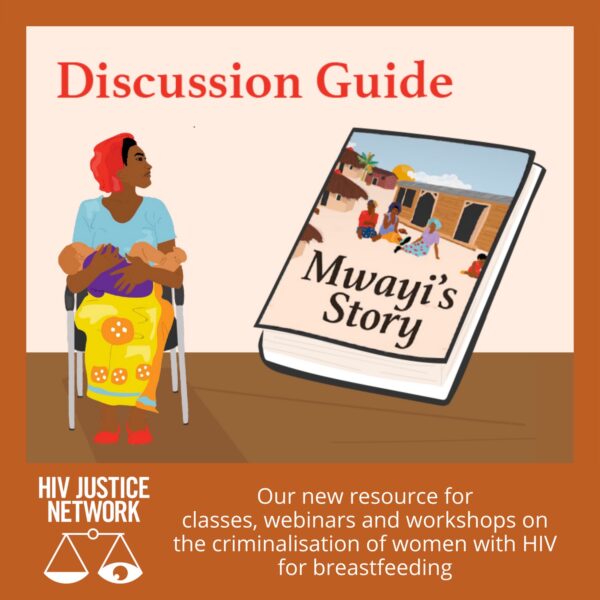
Mwayi’s Story is a story about courage, and about women standing up for their rights.
The film is based on the story of a woman in Malawi who was prosecuted for briefly breastfeeding another woman’s baby and the subsequent successful advocacy in Malawi to prevent an HIV criminalisation statute being passed. Ultimately, Mwayi’s Story is about HIV justice.
Mwayi’s Story was produced by the HIV Justice Network on behalf of HIV JUSTICE WORLDWIDE. It is in English with French, Russian and Spanish subtitles.
Mwayi’s Story can be used as an awareness-raising and educational resource in classes, webinars and workshops. A Discussion Guide is available to help facilitators lead conversations before and after viewing the film. The guide provides some background and then poses a number of questions to stimulate thought and discussion.
Mwayi’s Story is part of our ongoing work to end the criminalisation of women living with HIV for breastfeeding and comfort nursing, including our Breastfeeding Defence Action Toolkit – one of six Action Toolkits in the HIV Justice Academy.

Zimbabwe repeals its HIV-specific criminal law
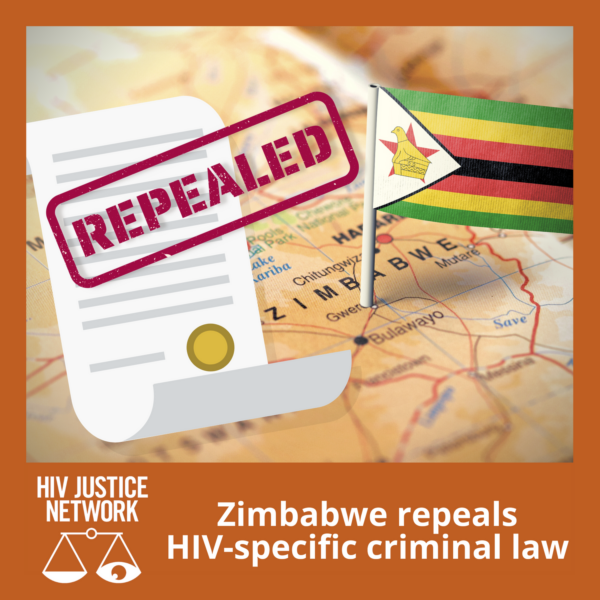
This month, Zimbabwe’s parliament finally agreed to repeal the country’s HIV-specific criminal law, section 79 of the Criminal Code. The significance of this cannot be underestimated. Zimbabwe becomes only the second country on the African continent to fully repeal its HIV-specific criminal law after the Democratic Republic of Congo repealed its law in 2018.
Although there have been remarkable advocacy successes elsewhere on the continent in preventing an HIV-specific criminal law being enacted in Malawi in 2017 and the suspension of one of Kenya’s two HIV-specific criminal laws on the grounds of unconstitutionality in 2015, it is rare for a sitting parliament to decide to completely repeal an HIV-specific criminal law.
The process was supported by a number of HIV JUSTICE WORLDWIDE partners, notably ARASA and SALC, along with other civil society organisations, including Zimbabwe Lawyers for Human Rights.

Beyond Blame: Challenging HIV Criminalisation for HIV JUSTICE WORLDWIDE
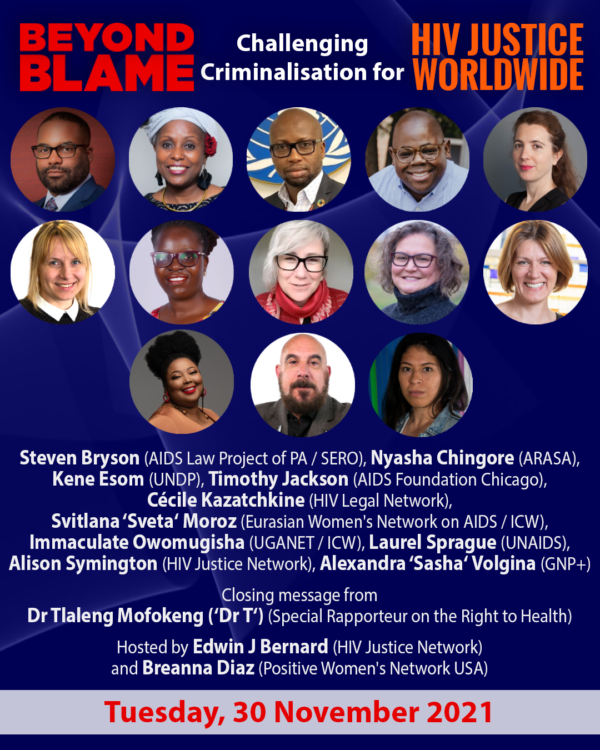
Beyond Blame, our flagship meeting for activists, human rights defenders, criminal legal system and public health system actors, healthcare professionals, researchers, and anyone else working to end HIV criminalisation, returned for a special eve-of-World AIDS Day edition following the success of last year’s Beyond Blame @ HIV2020, which was re-imagined as a two-hour web show.
The webinar highlighted some of the successes and challenges of the global movement to end HIV criminalisation over the past year, including work on ending the criminalisation of women living with HIV for breastfeeding, and exploring whether scientific advances, such as the prevention benefit of treatment (U=U) and Molecular HIV Surveillance, help or hinder our movement.
Dr Tlaleng Mofokeng, Special Rapporteur on the Right to Health, delivered a powerful closing message which can also be seen in this standalone video.
As well as the Director’s Cut in English, there are also separate versions available with French, Russian, and Spanish interpretation, as well as a playlist that contains each segment of the show (in English only) all available on HJN’s YouTube Channel.

Briefing paper: Molecular HIV Surveillance: A global review of human rights implications
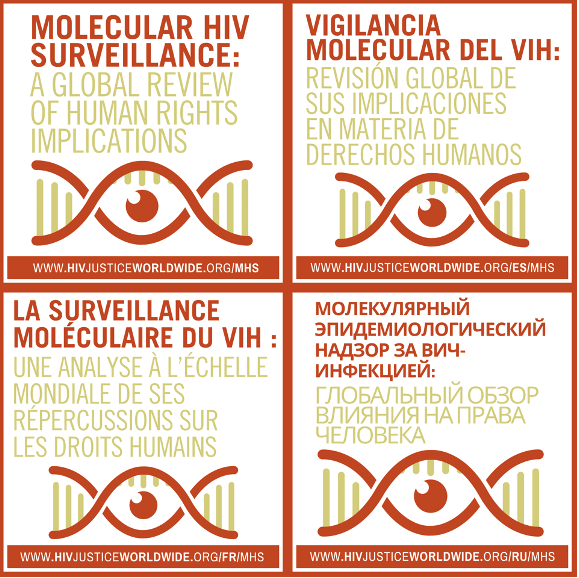
A new briefing paper published in October by Positive Women’s Network-USA on behalf of the HIV JUSTICE WORLDWIDE coalition aimed to support people living with HIV, activists, legal experts, and human rights campaigners in understanding the complexities and consequences of molecular HIV surveillance (MHS).
“Molecular HIV Surveillance: A global review of human rights implications” provides a detailed explanation of what MHS is and how it is used across the globe, including how the technology works, where it is being conducted, and by whom. The paper describes growing human rights concerns relating to the use of this technology and goes on to list a number of recommendations for the use of MHS which were gathered from an international literature review and from members of an Expert Advisory Group.
Initially available in English, the paper was subsequently published in French, Russian and Spanish in December 2021.

HIV Is Not A Crime Training Academy - Where advocacy successes are made and celebrated
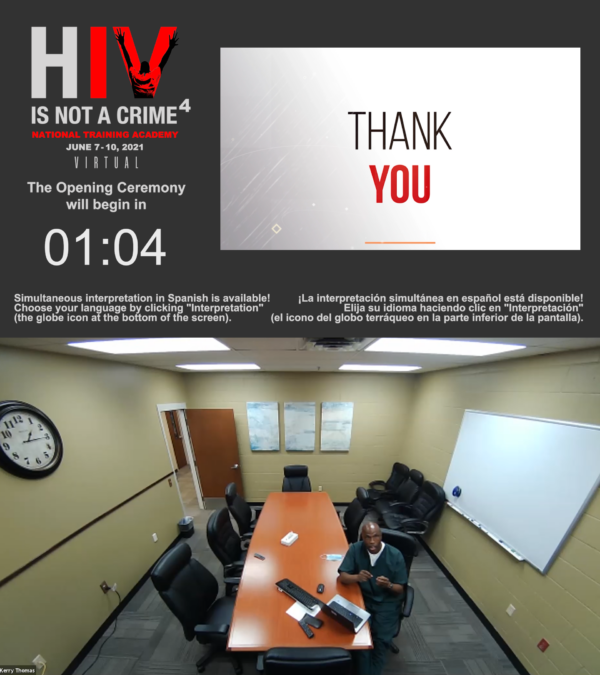
The summer of 2021 saw a huge amount of activity in the US movement to end HIV criminalisation, led by HIV JUSTICE WORLDWIDE Steering Committee members, Sero Project and PWN-USA, amongst others.
Illinois became only the second US state ever to completely repeal its HIV criminalisation law, which had been on the books since 1989. Nevada modernised its HIV criminalisation law, and in Michigan, a county prosecutor ordered a review of all prosecutions brought under the state’s law before it was modernised in 2019.
All of these successes were nurtured at previous HIV is a not a Crime Training Academies (HINAC, for short) and celebrated at HINAC4 which took place virtually in June. Sessions at HINAC4 supported and galvanising activists working for HIV, racial and gender justice across the US. Watch all the incredible sessions that took place at HINAC4 here.
Of note, Sero Board member and HIV criminalisation survivor Kerry Thomas, currently incarcerated in Idaho, addressed HINAC4 from prison. Although Kerry had been able to present by phone at previous national and international events, this was the first time anyone had been able to both see and hear Kerry.

HIV JUSTICE WORLDWIDE celebrates five years
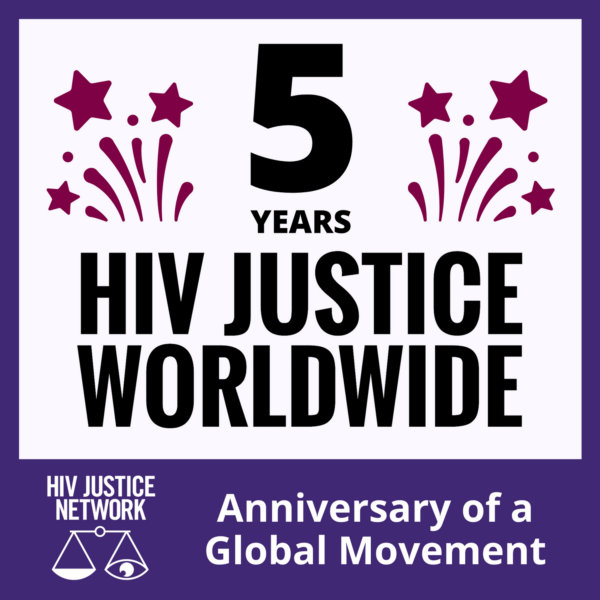
In March 2021, the HIV JUSTICE WORLDWIDE (HJWW) coalition which campaigns to end HIV criminalisation around the world, marked five years since its launch. It was on March 24th, 2016 when the seven HJWW founding partners and our key allies met in Brighton, UK to launch this coalition to coordinate a global response to the unjust use of criminal and similar laws against people with HIV.
We achieved some remarkable progress during that time. What started as a core group of seven working to shape the discourse on HIV criminalisation, has now grown to include more than 110 organisations and individuals sharing information and networking; building capacity; mobilising advocacy, and cultivating a global community collaborating to address HIV criminalisation.
From working on progressive, impactful statements on HIV science and the criminal law, and on COVID-19, to providing technical support to challenge proposed laws and strike down existing laws in various countries, to training advocates on how to work with the media, HJWW has also joined with other movements to highlight the intersectional aspects of HIV criminalisation with other key populations, as well as with movements for gender, racial and migrant justice, including during its flagship meeting, Beyond Blame.

JIAS Editorial: “Leave no-one behind” when working to end HIV criminalisation
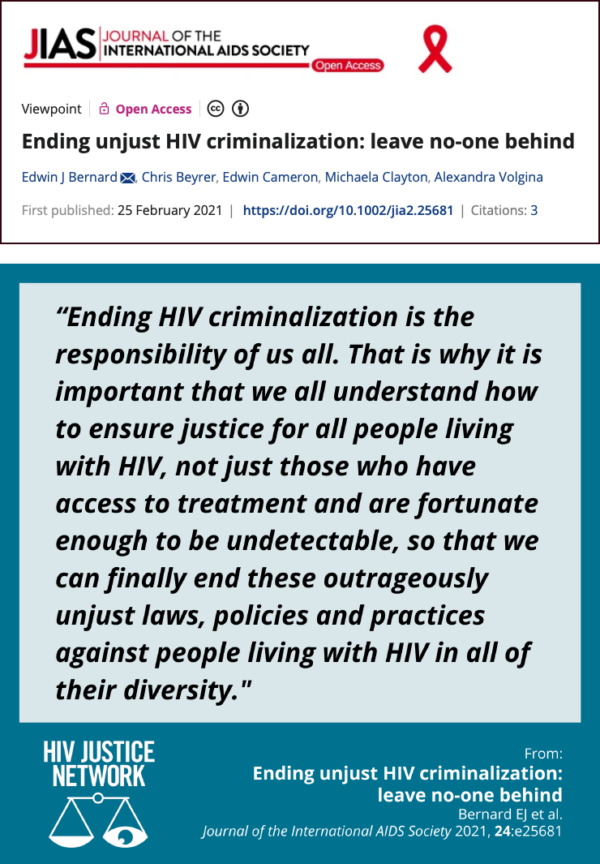
An editorial published to coincide with Zero Discrimination Day (March 1) by leaders in the HIV Justice movement celebrated “the courage and commitment of the growing global community of advocates, human rights defenders and others around the world who are challenging laws, policies and practices that inappropriately and unjustly criminalize people living with HIV”, but warned that this work must include and benefit those populations who are the most marginalised, and who remain most vulnerable to prosecution, despite advances in HIV science that are being used to challenge and modernise these laws.
Writing in the Journal of the International AIDS Society, the authors – who include HJN’s Executive Director, Edwin J Bernard; HJN’s Supervisory Board member, Michaela Clayton; and HJN’s Global Advisory Panel member, Edwin Cameron, along with Chris Beyrer, Desmond M. Tutu Professor of Public Health and Human Rights at the Johns Hopkins Bloomberg School of Public Health and GNP+’s Alexandra Volgina – noted that despite many advances in the science of HIV there remains one area that is still an “all too common a threat to the lives and wellbeing of people living with HIV, as well as to the goal of ending the epidemic” – HIV criminalisation.

Beyond Blame: Challenging HIV Criminalisation for HIV JUSTICE WORLDWIDE
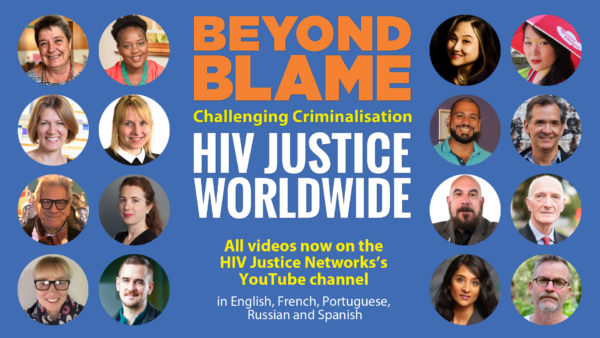
Beyond Blame: Challenging Criminalisation for HIV JUSTICE WORLDWIDE took place during the first week of the viritual HIV2020 conference.
The online version of Beyond Blame was a unique opportunity for both new and long-established activists to learn why HIV criminalisation matters, as well as hear about the wide range of initiatives and strategies that have been used by activists around the world to end the inappropriate use of criminal law to regulate and punish people living with HIV.
The interactive web show was hosted by HJN’s Executive Director, Edwin J Bernard, and featured interviews with various members of the HIV JUSTICE WORLDWIDE coalition, as well as members of the HIV Justice Network’s Global Advisory Panel (GAP).
The second part of the session, an interactive Q&A, was hosted by PWN-USA’s Naina Khanna and HJN’s Supervisory Board member, Paul Kidd.
Watch the entire show as a playlist on the HIV Justice Network's YouTube channel.

Launch of the new Global HIV Criminalisation Database
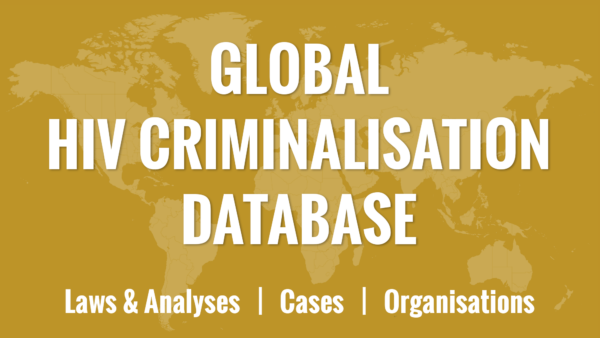
May 2020 saw the launch of the centerpiece of the newly designed HIV Justice Network (HJN) website, the new Global HIV Criminalisation Database, which comprises three separate but interrelated databases:
- Laws and Analyses – a new portal providing updated information and analysis of HIV criminalisation laws previously collated by GNP+ as part of the Global Criminalisation Scan;
- Cases – a regularly updated searchable global database of reported HIV criminalisation cases; and
- Organisations – a new directory of organisations around the world actively working against HIV criminalisation.

HIV JUSTICE WORLDWIDE Steering Committee Statement on COVID-19 Criminalisation
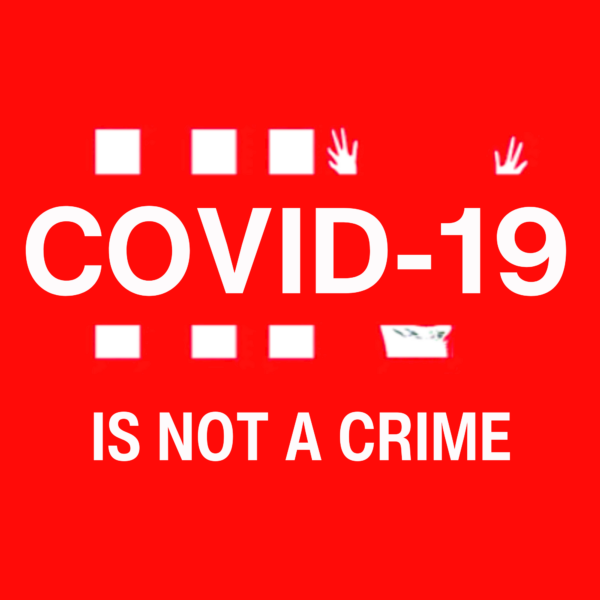
As the world struggled with a new global pandemic, the HIV JUSTICE WORLDWIDE Steering Committee issued a statement based on what we have learnt from the HIV response.
The Statement reminded law- and policymakers that communicable diseases are public health issues, not criminal issues, and that measures that are respectful of human rights and the empowering of communities are more effective than punishment and imprisonment.
The statement was published in four languages and has been widely referenced.

Fifth HIV JUSTICE WORLDWIDE Strategy Meeting takes place for first time in Amsterdam
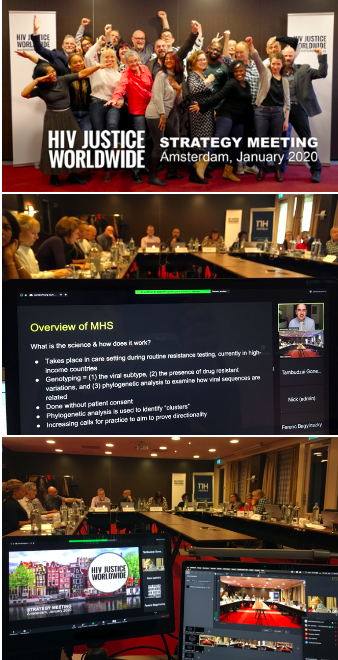
This year’s HIV JUSTICE WORLDWIDE Strategy Meeting was our largest yet, with many participants from around the world reflecting on the global movement to end HIV criminalisation.
Participants (pictured) included:
Gonzalo Aburto (Sero), Sylvie Beaumont (HJN), Edwin J Bernard (HJN), Sally Cameron (HJN), Georgina Caswell (GNP+), Nyasha Chingore (ARASA), Richard Elliott (Legal Network), Kené Esom (UNDP), Julian Hows (HJN), Cecile Kazatchkine (Legal Network), Naina Khanna (PWN-USA), Paul Kidd (HJN Supervisory Board), Svitlana Moroz (Eurasian Women’s Network on AIDS, representing ICW), Lisa Power (HJN Supervisory Board), Mianko Ramaroson (UNAIDS), Sean Strub (Sero), Alexandra Volgina (GNP+), Dymfke van Lanen (HJN), and Rebekah Webb (HJN).
In addition, Ferenc Bagyinszky (AAE), Tambudzai Gonese (SALC), Victoria Grandsoult (UNITE), Ibrahim Kassoumou (Coordination de lutte intersectorielle contre les IST/VIH/SIDA); Anneke Meerkotter (SALC); and Alexander McClelland (HJN Global Advisory Panel) also joined by video conference, which was hosted by Nicholas Feustel (Georgetown media).

Global Partnership for Action to Eliminate All Forms of HIV-Related Stigma and Discrimination
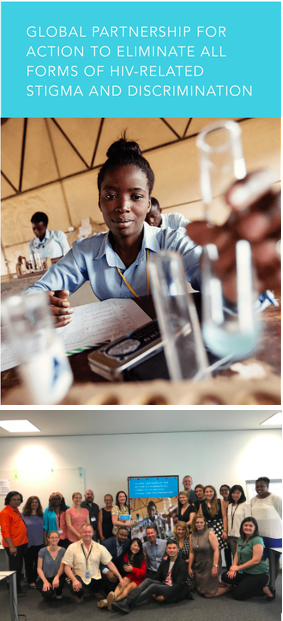
In June, HIV JUSTICE WORLDWIDE Steering Committee members, GNP+ and HIV Justice Network, met with UN co-sponsors and other civil society organisations from around the world for a face-to-face meeting in Geneva of co-leads and co-conveners of the Global Partnership for Action to Eliminate All forms of HIV-related Stigma and Discrimination in order take stock on the progress establishing the partnership and to agree on a package of programmatic interventions and list of focus countries.
The partnership creates an opportunity to harness the combined power of governments, civil society, bilateral and multilateral donors, academia and the United Nations to consign HIV-related stigma and discrimination to history. Building on the commitments that countries have made as signatories to international conventions, as well as pledges at regional and national levels, the global partnership will support countries to translate those promises into policy changes, programmes and practices that realize HIV-related rights.
Based on the recommendations provided by civil society organizations and global networks of people living with HIV and key populations, the partnership will initially focus on health-care, education, workplace, legal and justice, family and community and emergency and humanitarian settings.
Programmes to eliminate HIV-related stigma and discrimination will focus on the people being left behind in the HIV response, including people living with HIV, key populations, indigenous populations, prisoners and other incarcerated people, migrants, and women and girls, particularly adolescent girls and young women.
The work continues…

Significant advances in improving the legal environment for people living with HIV in Canada
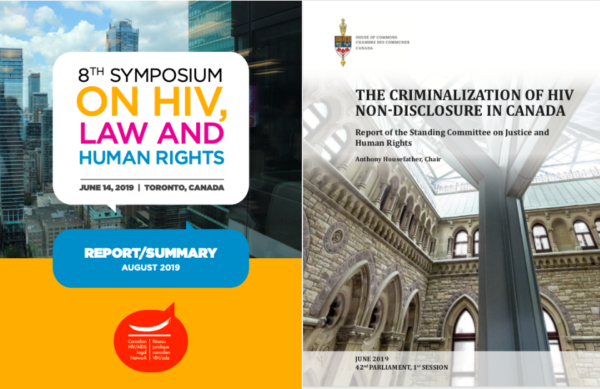
On June 14th, HIV JUSTICE WORLDWIDE Steering Committee member, the Canadian HIV/AIDS Legal Network, held their 8th Symposium on HIV, Law and Human Rights. The Symposium featured moving stories from people who have experience being criminalised, and analysis from scientific experts and others active in the community. Click on the link to download the report in English or French.
Immediately folllowing the Symposium, the House of Commons Standing Committee of Justice and Human Rights released a ground-breaking report “The Criminalization of HIV Non-Disclosure in Canada” recommending that the Government of Canada works with each of the Canadian provinces and territories to end the use of sexual assault law to prosecute allegations of HIV non-disclosure. Read more about the report and its recommendations here.
The report is the result of a study of the ‘Criminalization of Non-Disclosure of HIV Status’ that ran between April and June 2019. Many Canadian experts testified as key witnesses to help MPs gain insight into why Canada’s current approach is wrong. HIV JUSTICE WORLDWIDE also submitted a brief to the committee, providing international context to Canada’s extremely severe approach to HIV non-disclosure.

Colombia Constitutional Court strikes down HIV criminalisation law
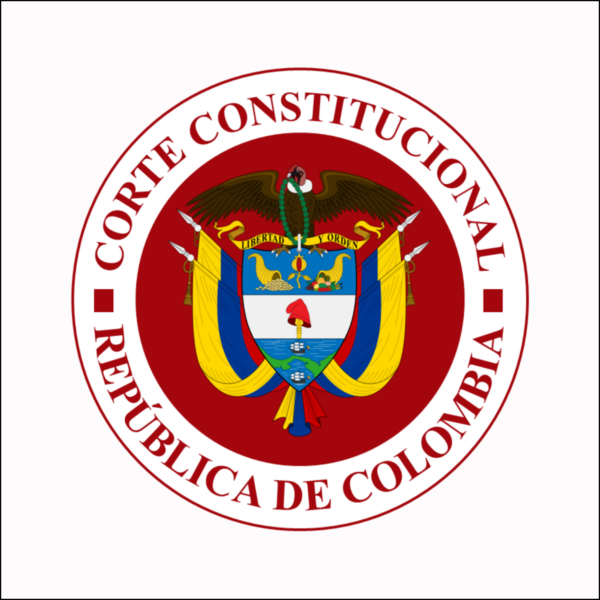
Following a constitutional challenge – supported by HIV JUSTICE WORLDWIDE through an amicus brief from Edwin Cameron – on June 5th, the Constitutional Court overturned article 370 of Law 599 of 2000 which criminalised people living with HIV or Hepatitis B for exposing others to the virus.
The Court found that the law did not pass the proportionality test because it is not a necessary or effective measure for its intended purpose, and also stigmatised certain people.
Click on the link to download a pdf of the judgement in Spanish or an officially certified translation into English.

Submission to International Commission of Jurists’ (ICJ): principles on the misuse of criminal law
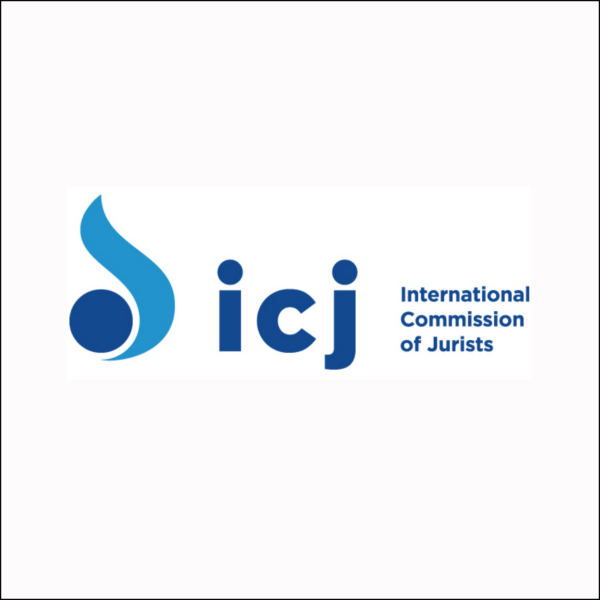
HIV JUSTICE WORLDWIDE provided a submission to the International Commission of Jurists (ICJ) who are developing principles on the misuse of criminal law and the detrimental impact of the criminalisation of conduct related to sexuality, reproduction, drug use and HIV in order to guide legal practice and law reform as a means to improve the health, equality and human rights of people living with HIV and associated populations.
This submission was prepared based on discussions that occurred during a meeting of the HIV JUSTICE WORLDWIDE Steering Committee (see below) in Brighton, England in February 2019. A half-day workshop was convened to gain input from participating Steering Committee members with facilitated discussion focusing on both core and thematic questions. This process provided members with the opportunity to hear from each other and to consider their positions in relation to others’, before deciding on a shared position.
Download and read the submission here.

Fourth HIV JUSTICE WORLDWIDE Strategy Meeting takes place in Brighton
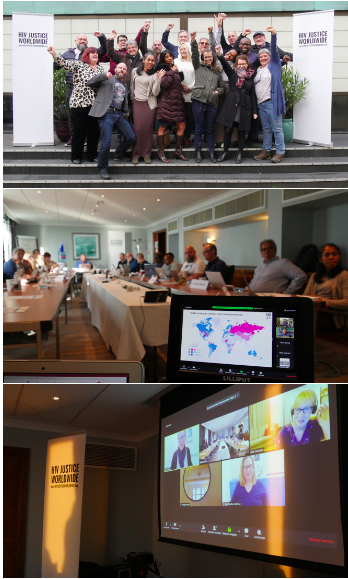
This year’s HIV JUSTICE WORLDWIDE Strategy Meeting – our fourth and the last to be convened in Brighton, UK – reflected on the global impact of HIV JUSTICE WORLDWIDE so far, and explored how to move forward to build on the momentum and increased visibility of the movement to end HIV criminalisation. Among the many challenges and successes discussed it was noted that the Expert Consensus Statement had been used by organisations in the following countries:
- KELIN to challenge unjust HIV law in Kenya.
- People Plus in Belarus in their advocacy to the Health & Justice Department.
- A coalition of organisations has used it in the recent Zimbabwe symposium on HIV and the law, which included representative of the legislature and judiciary.
- ALCS in Morocco in their advocacy with the prosecutor’s office, with national security and with the judiciary. They are also planning some capacity building work for judges and prosecutors.
- It has been used in Canada in engaging with Federal Attorney General to get prosecutorial guidelines; it has been shared directly with every Attorney General in the country, some of whom have begun to respond; it has been profiled as a reference in the Medical Association Journal.

Welcoming important developments in Belarus in the fight against HIV criminalisation
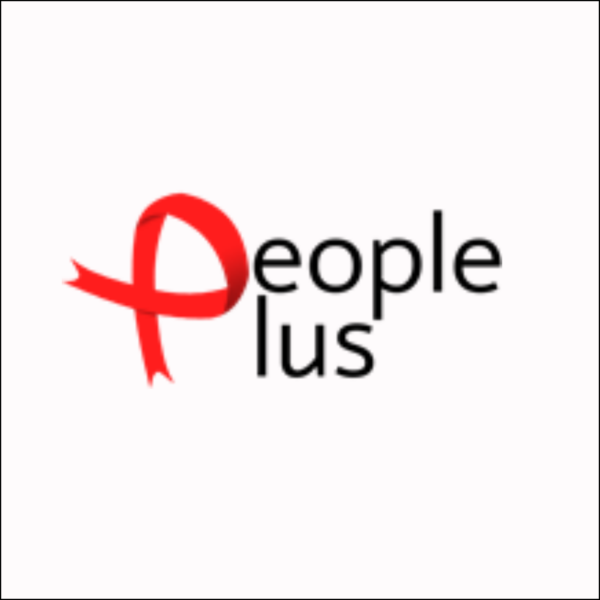
HIV JUSTICE WORLDWIDE along with our partners at The Eurasian Women’s Network on AIDS and Global Network of People Living with HIV (GNP+) welcomed the announcement of an amendment to Article 157 of the Criminal Code of the Republic of Belarus, which finally allows consent following disclosure to a sexual partner as a defence against prosecution for potential or perceived HIV exposure or transmission. Whilst recognizing there is still a long way to go to remove all unjust criminal laws against people living with HIV in Belarus, we congratulate our partners and colleagues in Belarus People PLUS for this achievement!

Launch of the Expert Consensus Statement on the Science of HIV in the Context of Criminal Law
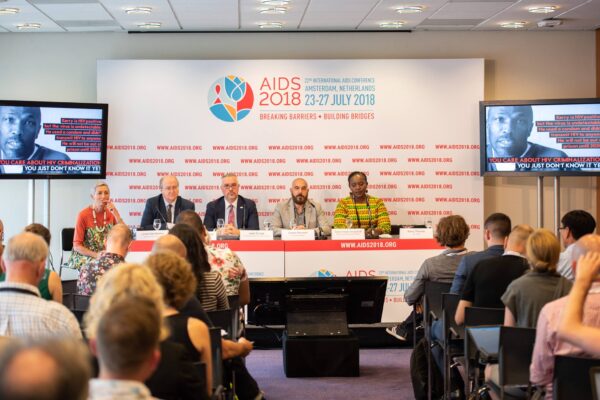
With the potential for changing the global paradigm of how HIV criminalisation is challenged in courts, the “Expert consensus statement on the science of HIV in the context of criminal law” was published in last month’s Journal of the International AIDS Society and launched at the 22nd International AIDS Conference in Amsterdam (AIDS 2018).
The Statement provides the first globally-relevant expert opinion regarding individual HIV transmission dynamics (i.e., the ‘possibility’ of transmission), long-term impact of chronic HIV infection (i.e., the ‘harm’ of HIV), and the application of phylogenetic analysis (i.e., whether or not this can be used as definitive ‘proof’ of who infected whom). Based on a detailed analysis of scientific and medical research, it describes the possibility of HIV transmission related to a specific act during sexual activity, biting or spitting as ranging from low to no possibility. It also clearly states that HIV is a chronic, manageable health condition in the context of access to treatment, and that while phylogenetic results can exonerate a defendant when the results exclude them as the source of a complainant’s HIV infection, they cannot conclusively prove that one person infected another.
HIV JUSTICE WORLDWIDE has advocated for this document for many years, and supported its development alongside UNAIDS, IAPAC and IAS. Read more about the evidence in the statement in a short summary and Frequently Asked Questions. document.

Beyond Blame: Challenging HIV Criminalisation at AIDS 2018
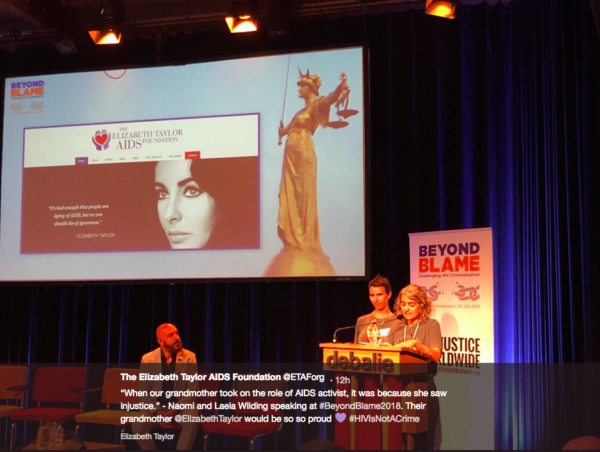
HIV JUSTICE WORLDWIDE’s one-day symposium, Beyond Blame 2018: Challenging HIV Criminalisation took place at historic De Balie in Amsterdam just prior to AIDS 2018. Around 170 activists, advocates, judges (including Justice Edwin Cameron), lawyers, scientists (including Dr Chris Beyrer), healthcare professionals, researchers and others working to end HIV criminalisation participated in rich, nuanced discussions.
The programme included interactive panels, presentations and parallel sessions/workshops focusing on critical issues in the fight against HIV criminalisation around the world. The entire day was webcast live, and can be viewed on You Tube. You can also read the meeting report: download the pdf here.
The meeting was opened by Elizabeth Taylor’s grandchilden, Laela and Naomi Wilding. Laela noted that attending the previous Beyond Beyond in Durban, prior to AIDS 2016, was “a turning point” for herself personally, that their grandmother would have been “outraged” by this, and that the Elizabeth Taylor AIDS Foundation now makes HIV criminalisation “the focus of our advocacy efforts”.

Third US 'HIV is Not a Crime' Training Academy includes participants from Belize, Canada, Colombia and Mexico
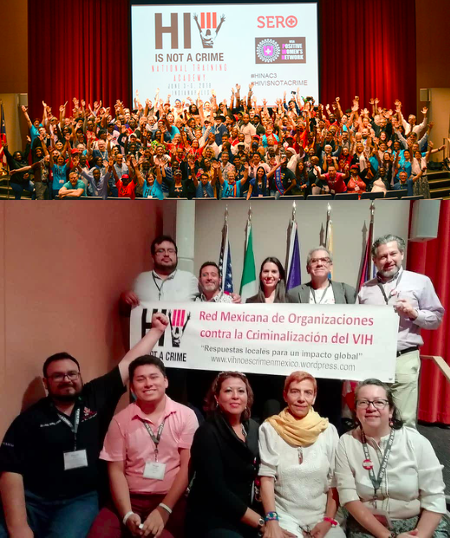
The third US ‘HIV Is Not a Crime’ Training Academy co-organised by two HIV JUSTICE WORLDWIDE Steering Committee members, the SERO Project and Positive Women’s Network – USA, took place between June 3-6 at Indiana University – Purdue University Indianapolis.
Anchored by six plenary sessions, where expert panels of people living with HIV, advocates, lawyers and parliamentarians delved into rich discussions, including the experiences of survivors of HIV criminalisation; the intersection of race and gender in criminalisation; and what legislative champions do behind the scenes to move bills. Participants also had 20 breakout sessions to choose from throughout the three days.
The Training Academy also included participation from advocates and legal experts from Belize, Canada, Colombia and Mexico, and for the first time included a plenary session on HIV criminalisation the Latin American region.
In addition, the opening, closing and plenary sessions were all streamed live on Facebook (archived here), allowing real-time international participation.
Both of these latter initiatives were supported by HIV JUSTICE WORLDWIDE.

Mexico Supreme Court finds Veracruz law criminalising ‘wilful transmission’ of HIV and STIs to be unconstitutional
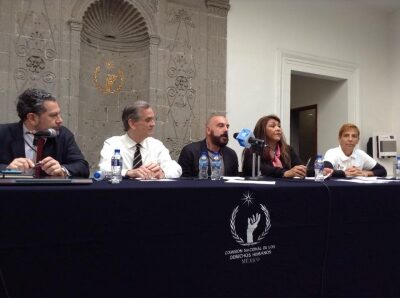
Following a Constitutional challenge initiated in February 2016 by the Multisectoral Group on HIV / AIDS and STIs of Veracruz and the National Commission on Human Rights, and supported by HIV JUSTICE WORLDWIDE, Mexico’s Supreme Court of Justice ruled that the amendment to Article 158 of the Penal Code of the State of Veracruz was invalid as it violates a number of fundamental rights: equality before the law; personal freedom; and non-discrimination.

Third HIV JUSTICE WORLDWIDE Strategy Meeting takes place in Brighton
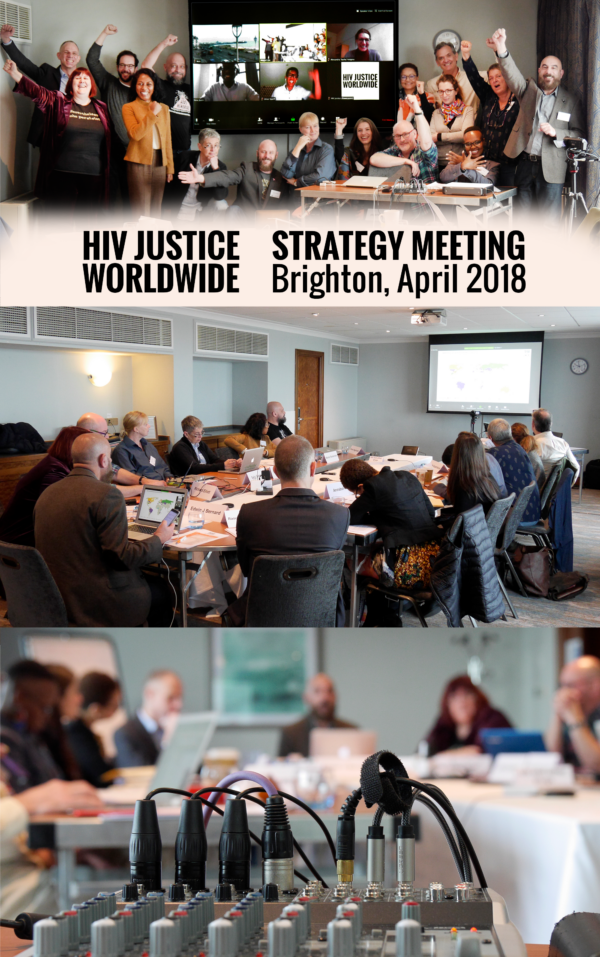
At our third HIV JUSTICE WORLDWIDE strategy meeting, our growing number of partners and supporters spent three days discussing ways to work closer together to further enhance the capacity of advocates to challenge and influence law-, policy- and decision-makers to prevent or stop unjust use of criminal laws against people living with HIV.
This time, due to increasing regional participation, we used streaming technology to bring partners from around the world into our seafront meeting room Brighton, and vice versa.
An asterisk* denotes HIV JUSTICE WORLDWIDE Steering Committee member.
(L-R): Raoul Fransen (Supervisory Board, HIV Justice Network) Lisa Power (Supervisory Board, HIV Justice Network), Seth Earn (AIDS Free World*); Mianko Ramaroson (UNAIDS); Ferenc Bagyinszky (AIDS Action Europe*), Sylvie Beaumont (Research/Outreach Co-ordinator, HIV Justice Network); Kene Esom (UNDP); Nicholas Feustel (Video Advocacy Consultant, HIV Justice Network); Omar Syarif (GNP+); Sally Cameron (Senior Policy Analyst, HIV Justice Network*); Alexandra Volgina (GNP+*); Annabel Raw (SALC*); Oratile Moseki (International HIV/AIDS Alliance); Richard Elliott (Canadian HIV/AIDS Legal Network*); Sean Strub (Sero Project*); Cecile Kazatchkine (Canadian HIV/AIDS Legal Network*); Lynette Mabote (ARASA*); Michaela Clayton (ARASA*); and Edwin J Bernard (Global Co-ordinator, HIV Justice Network*).
Other participants at the meeting, but not pictured here, were: Stéphanie Claivaz-Lorager (independent consultant); Naina Khanna (Positive Women Network-USA*); Paul Kidd (Supervisory Board, HIV Justice Network), Rebecca Matheson-Omondi (International Community of Women Living with HIV*); and Svitlana Moroz (Eurasian Women’s Network on AIDS).

New Toolkit Supports Advocates in Using Media to Fight for HIV Justice
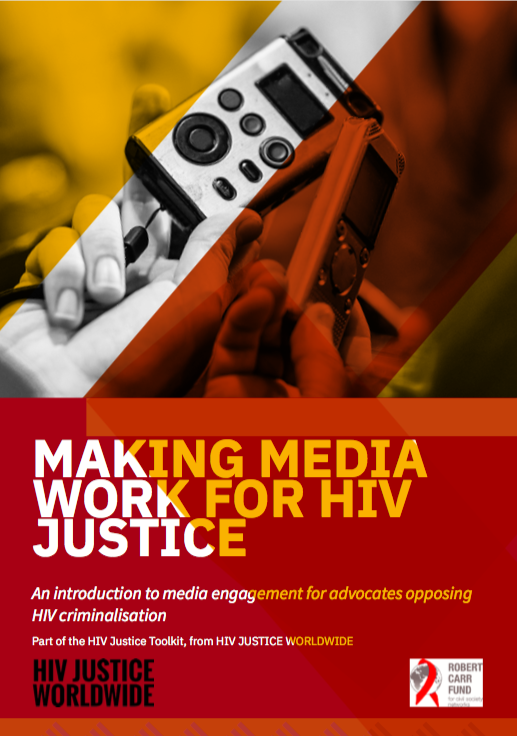
In March 2018, HIV JUSTICE WORLDWIDE published, “Making Media Work for HIV Justice: An introduction to media engagement for advocates opposing HIV criminalisation.”
Produced by Positive Women’s Network-USA on behalf of HIV JUSTICE WORLDWIDE, the toolkit helps advocates understand the importance of engagement with media to change narratives around this unjust practice.
It also includes reporting tips for journalists, designed to educate writers and media makers around the nuances of HIV criminalisation, and the harms of inaccurate and stigmatising coverage.
In April, a 90 minute webinar hosted by PWN-USA introduced attendees to some of the concepts and practices highlighted in the toolkit, and featured formidable activists, journalists, communications professionals, and human rights defenders working at the intersection of media and HIV criminalisation.

Equipping lawyers and activists across Africa with the skills to counter HIV and TB criminalisation
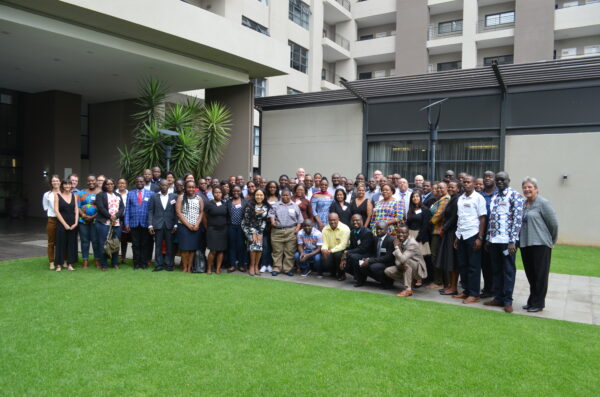
Over 80 lawyers and activists from 27 African countries gathered from 20 to 23 February 2018 for a four-day training workshop aimed at equipping lawyers and activists with skills and knowledge on HIV and TB criminalisation.
The training was hosted by HIV JUSTICE WORLDWIDE Steering Committee members, the Southern Africa Litigation Centre (SALC), the AIDS and Rights Alliance for Southern Africa (ARASA) and HIV Justice Network, along with Kenya Legal & Ethical Issues Network on HIV and AIDS (KELIN), Stop TB Partnership and UNAIDS, with support from the United Nations Development Programme (UNDP) through the Africa Regional Grant on HIV: Removing Legal Barriers.
An important new resource for lawyers defending clients and working on strategic litigation, the HIV Criminalisation Defence Case Compendium was published by SALC to accompany the training.
The entire meeting was streamed live and all of the sessions are available to watch on SALC's YouTube channel.

HIV criminalisation in francophone Africa highlighted at ICASA
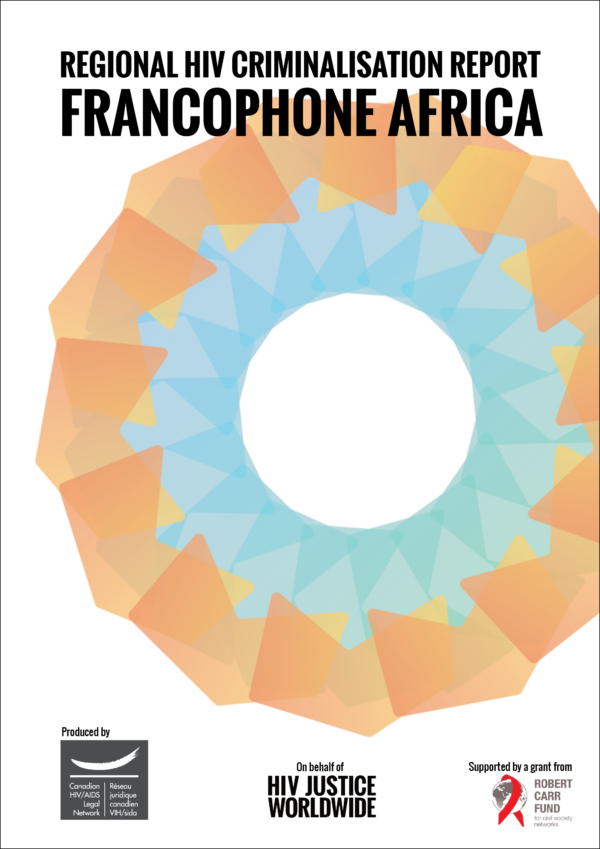
As a side event to the ICASA conference in Côte d’Ivoire in early December, the Canadian HIV/AIDS Legal Network organised a unique meeting on HIV criminalisation in Francophone Africa on behalf of HIV JUSTICE WORLDWIDE.
Bringing together people living with HIV, activists, lawyers and a judge, as well as organizations representing or working with the LGBTI communities, drug users and sex workers in North, West and Central Africa, this meeting helped lay the foundations for a Francophone network against HIV criminalisation.
At the meeting, HIV JUSTICE WORLDWIDE also released the first-ever Regional HIV Criminalisation Report for Francophone Africa, produced by the Canadian HIV/AIDS Legal Network, which found that of the 18 countries in the region, 16 HIV-specific laws criminalise HIV transmission or exposure with only the HIV-specific laws of Comoros and Mauritius containing no criminal provisions in this respect.
It also found case reports (including cases that have been discontinued or settled outside of the courts) in 11 countries – Benin, Burkina Faso, Cameroon, Congo, Morocco, Mauritania, Niger, Central African Republic, Democratic Republic of the Congo, Togo and Tunisia.
The report, in French, also includes an English-language summary, and can be downloaded here.

An important, but modest, advance in improving the legal environment for people living with HIV in Canada
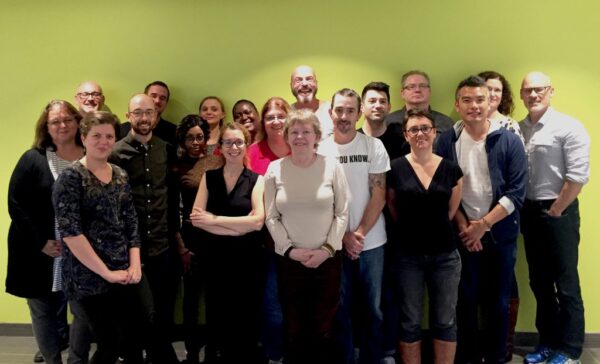
Following years of advocacy from HIV JUSTICE WORLDWIDE founding partner, the Canadian HIV/AIDS Legal Network, and their allies in the Canadian Coalition to Reform HIV Criminalisation, it was announced by Federal and Provincial ministers on World AIDS Day that the latest science relating to the prevention benefit of HIV treatment should be taken into consideration when prosecuting alleged HIV non-disclosure: an important, but modest advance.
There is a now a call for both a moratorium on all HIV-related prosecutions and a review of existing convictions and for a more radical overhaul of Canada’s framing of HIV non-disclosure as aggravated sexual assault.

Celebrating the adoption of Malawi's amended HIV Law that removes rights-infringing provisions
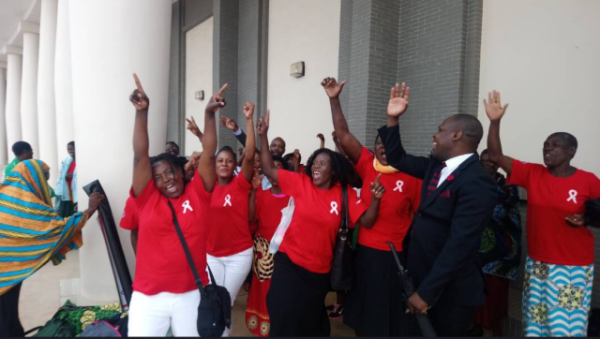
On Tuesday, 28 November, Malawi Members of Parliament voted to reject coercive and criminalising provisions that threatened human rights in a long-deliberated HIV (Prevention and Management) Bill.
Support from a number of HIV JUSTICE WORLDWIDE Steering Committee members resulted in the galvanising of women activists in Malawi, who protested before Parliament against a number of rights-infringing provisions in the HIV Bill, including mandatory HIV testing and treatment for select populations on a discriminatory basis, and provisions that would have criminalised negligent, reckless and intentional HIV exposure and transmission.
You can read the press release from HIV JUSTICE WORLDWIDE partners (ARASA, GNP+ and SALC) celebrating this important achievement.

Mexico's first ‘HIV is Not A Crime’ meeting leads to new Network and impressive early results

In October 2017 the first Spanish-language ‘HIV Is Not A Crime’ meeting took place in Mexico City, supported by the HIV JUSTICE WORLDWIDE coalition.
The two-day meeting brought together people living with HIV, activists, lawyers, human rights defenders, and academics from across Mexico – alongside HIV JUSTICE WORLDWIDE partners CNET+ (Belize), Sero Project (USA), and the HIV Justice Network – to discuss the current state of HIV criminalisation nationally, regionally and globally.
As a result of the meeting, the Mexican Network of organisations against the criminalisation of HIV was formed, bringing together 29 organizations from all over the country. During, and immediately following the meeting, the Network drafted an 11-point Declaration addressed to various governmental agencies in charge of responding to the epidemic, as well as to society in general.
With two weeks of the meeting, Network representatives met with Congresswoman Laura Beristain, who had proposed the new unjust, overly broad HIV criminal law in Quintana Roo. She listened to their arguments, read the Declaration, and immediately gave a firm commitment to repeal Quintana Roo’s problematic provisions in Article 113.

First-ever European Legal Environments Training Academy takes place in Berlin
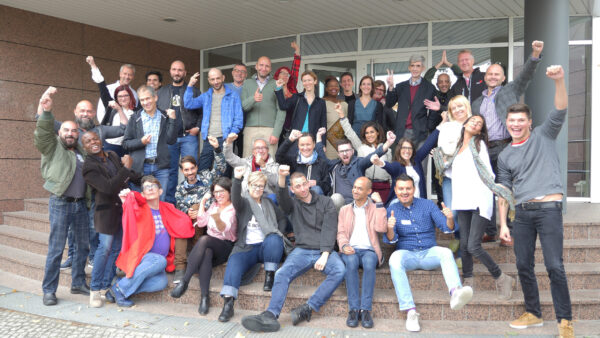
In September 2017, the first European HIV Academy for Enabling Legal Environments brought together 35 advocates from 20 countries working on HIV-related law and policy reform across the WHO Europe region.
This European Legal Environments Training Academy (#ELETA) was a joint collaboration of three HIV JUSTICE WORLDWIDE Steering Committee members AIDS Action Europe, Global Network of People living with HIV (GNP+) and HIV Justice Network plus the European AIDS Treatment Group.

Presenting our work to philanthropic funders in Washington DC at the Funders Concerned About AIDS Summit
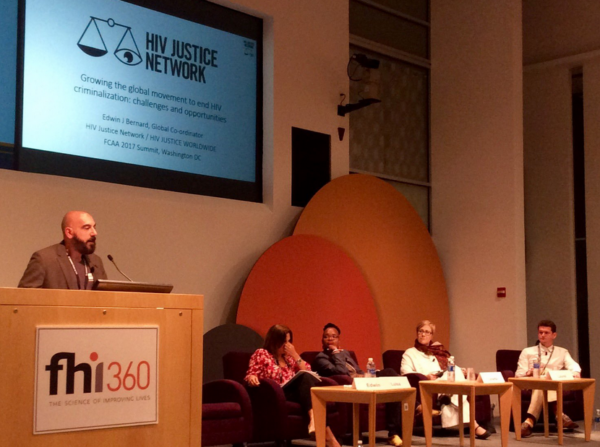
In September, three HIV JUSTICE WORLDWIDE founding members – Laurel Sprague, Executive Director of the Global Network of People living with HIV (GNP+), Lynette Mabote, Regional Programmes Lead at ARASA and HIV Justice Network’s Global Co-ordinator, Edwin Bernard – presented at the Funders Concerned About AIDS (FCAA) Philanthropy Summit in Washington DC on the worldwide movement to end HIV criminalisation, alongside our key partner, Luisa Cabal, Special Adviser on Human Rights and Gender at UNAIDS. The session was chaired by Sergey Votyagov, Executive Director of the Robert Carr civil society Networks Fund, which funds the HIV JUSTICE WORLDWIDE coalition.

Johannesburg Meeting: 'From N’Djamena to SADC and EAC Model Laws and Beyond'
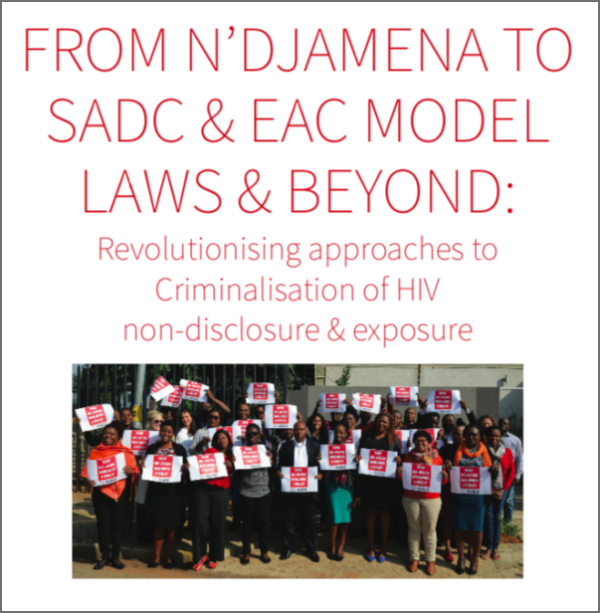
In April 2017, ARASA – in collaboration with other members of the HIV JUSTICE WORLDWIDE Steering Committee – convened a two-day meeting involving policy and law makers, members of the judiciary, lawyers, parliamentarians and representatives from civil society organisations from the East African, SADC regions and global North.
The meeting discussed the ways HIV criminalisation is creating an adverse impact on public health needs and outcomes for certain populations, especially women, perpetuating gender inequality, and further marginalising and stigmatising key populations. The meeting concluded that there is a need to focus on the inter-sectionalities within the HIV criminalisation discourse.
Download and read the meeting report here.

Second HIV JUSTICE WORLDWIDE Strategy Meeting
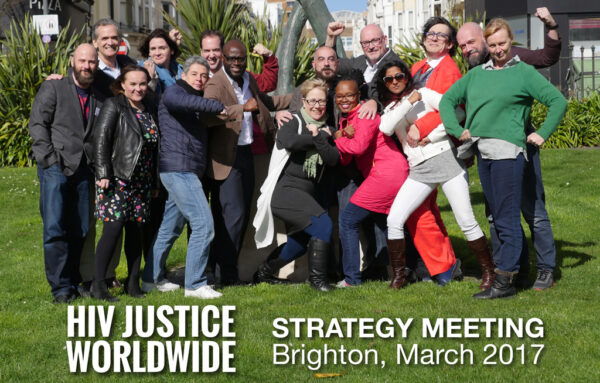
At our second HIV JUSTICE WORLDWIDE strategy meeting, our growing number of partners and supporters spent three days discussing ways to work closer together to further enhance the capacity of advocates to challenge and influence law-, policy- and decision-makers to prevent or stop unjust use of criminal laws against people living with HIV.
(L-R): Nicholas Feustel (Video Advocacy Consultant, HIV Justice Network*); Sean Strub (Sero Project*); Catherine Murphy (Amnesty International); Evgenia Maron (EECA Consultant); Sylvie Beaumont (Research/Outreach Co-ordinator, HIV Justice Network*); Seth Earn (AIDS Free World*); Patrick Eba (UNAIDS); Laurel Sprague (formerly HJN’s Research Fellow on HIV, Gender and Justice, now Executive Director, GNP+*); Edwin J Bernard (Global Co-ordinator, HIV Justice Network*); Lynette Mabote (ARASA*); Richard Elliott (Canadian HIV/AIDS Legal Network*); Naina Khanna (PWN-USA*); Julian Hows (GNP+*); Ferenc Bagyinszky (AIDS Action Europe); and Sally Cameron (Senior Policy Analyst, HIV Justice Network*).
Other participants at the meeting, but not pictured here, were: Sophie Brion (ICW*), Lisa Power (Chair, Supervisory Board, HIV Justice Network*) and Boyan Konstantinov (UNDP).

Supporting the Veracruz legal challenge at the Mexican Supreme Court
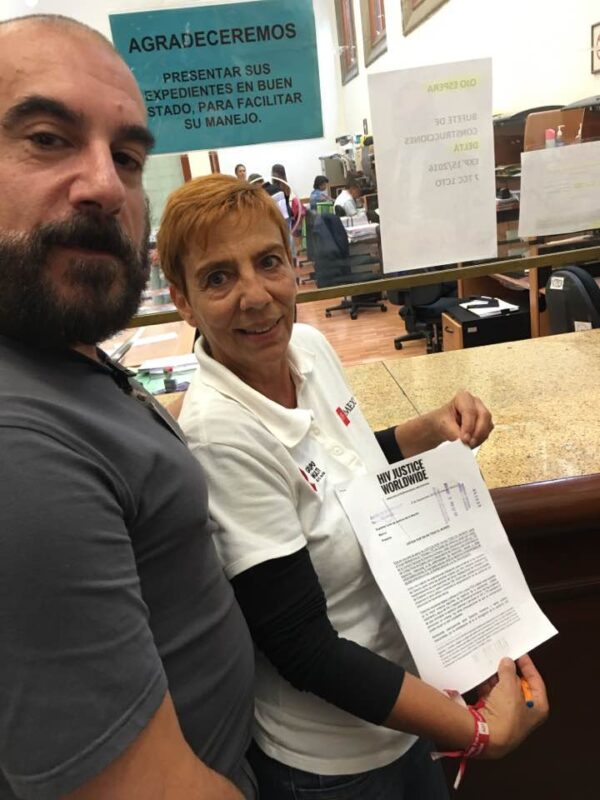
HIV Justice Network’s Global Co-ordinator, Edwin J Bernard, and SERO’s Executive Director, Sean Strub, joined advocates in Mexico City to highlight a letter of support from HIV JUSTICE WORLDWIDE to a legal challenge to the HIV-specific criminal law in Veracruz undertaken by the Mexican Human Rights Commission and the Veracruz Multisectoral Group.
This was followed by a march from the Human Rights Commission’s building to the Supreme Court of Justice, where the letter was officially registered as a friend of the court submission.
(Pictured: Edwin J Bernard and Patricia Ponce, of the Veracruz Multisectoral Group presenting the letter to the Supreme Court.)

Beyond Blame @AIDS2016
The HIV Justice Network and ARASA co-organised the Beyond Blame pre-conference prior to AIDS 2016 in Durban on behalf of the HIV JUSTICE WORLDWIDE coalition. The meeting allowed advocates from 36 countries to strategise and build power together and also placed HIV criminalisation on the main conference stage.
ARASA and the Canadian AIDS Legal Network also co-hosted the Human Rights Networking Zone in the Global Village at AIDS 2016.
Reaching a global TV/web audience on The Stream
ARASA’s Executive Director, Michaela Clayton, HIV Justice Network’s Global Co-ordinator, Edwin J Bernard, and SERO advisory board member, Ken Pinkela, reached a global audience on both TV and the internet with a 30 minute programme on The Stream, on Al Jazeera English. Anand Grover, Senior Advocate at Supreme Court of India, founder of India’s Lawyers Collective, and a former UN Special Rapporteur on the Right to Health also appeared.
HIV Is Not a Crime Training Academy
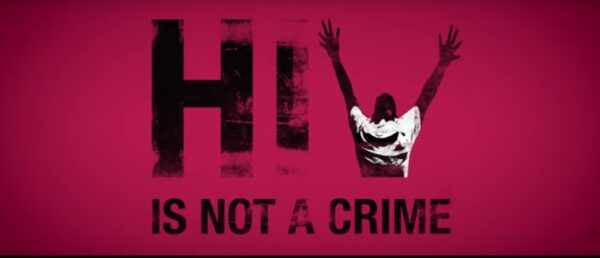
The Sero Project and Positive Women’s Network-USA jointly organised the HIV Is Not a Crime Training Academy, designed to galvanise momentum towards intersectional approaches to ending HIV criminalisation.
Held at the University of Alabama, Huntsville, the meeting brought together more than 300 advocates from 34 US states, as well as delegations from Canada and Mexico, building new relationships and providing participants with new skills to help address HIV criminalisation locally, nationally and regionally.
Since the training academy we’ve seen tremendous advances and strategic and fierce organising led primarily by people living with HIV.

HIV JUSTICE WORLDWIDE Launch
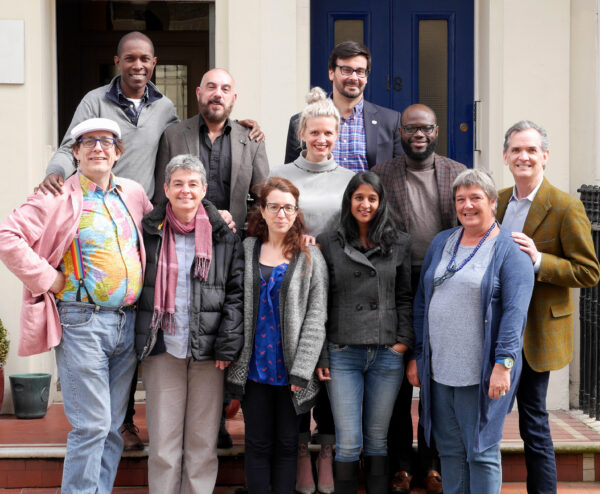
In March 2016, seven civil society networks from around the globe, most of them led by people living with HIV, launched the HIV JUSTICE WORLDWIDE coalition to coordinate a global response to the unjust use of laws against people with HIV.
Watch the video to learn what why we joined forces and what we hoped to achieve.
The photo shows the HIV JUSTICE WORLDWIDE founding partners alongside representatives of UNAIDS and UNDP at the launch of the coalition in Brighton, March 24th 2016.
Back row L-R: Rhon Reynolds (GNP+), Edwin J Bernard (HIV Justice Network), Jessica Whitbread (ICW), Boyan Konstantinov (UNDP), Patrick Eba (UNAIDS), Sean Strub (SERO).
Front row L-R: Julian Hows (GNP+), Sylvie Beaumont (HIV Justice Network), Cécile Kazatchkine (Canadian HIV/AIDS Legal Network), Naina Khanna (PWN-USA) and Michaela Clayton (ARASA).
